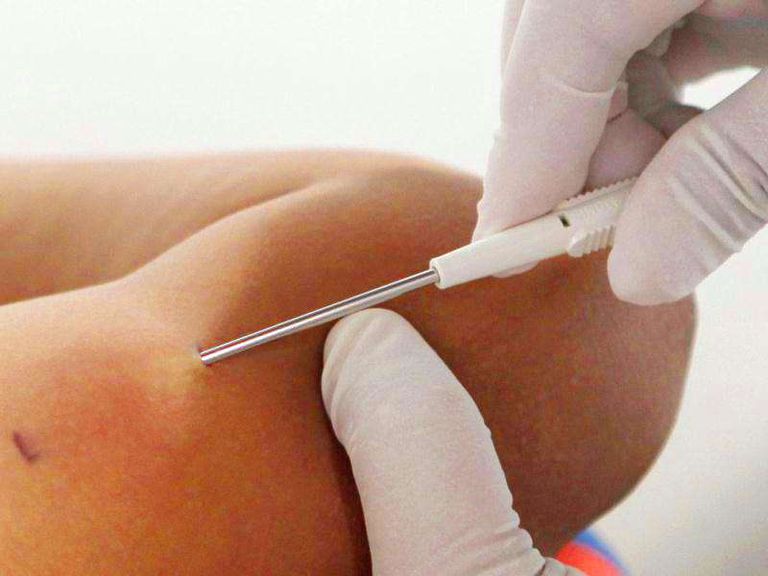Source: Thailand Medical News Sep 21, 2019 6 years, 3 months, 1 day, 6 hours, 3 minutes ago
For those on Antiretroviral therapy for prevention or treatment of HIV, whether on a single pill or combo regimen, it can be burdensome making sure the drugs are consumed without fail at the right times despite having a busy daily schedule. Those days might soon be over thanks to medical researchers across multiple departments at the University of North Carolina who collaborated on a seven-year study in animals models to make a better injectable drug implant that can combine multiple drugs and is ultra-long-acting, while also addressing many of the challenges faced with current
HIV treatment and prevention methods. The new drug delivery platform is such that patients might only need one injection or maybe two a year only.
Antiretroviral drugs are used in both prevention and treatment of HIV, and multiple types are used in combination to counteract resistance to any one antiretroviral drug. These drugs need to be taken consistently every day. There are many obstacles that stand in the way of adherence to these medication regimens. This especially applies to otherwise healthy people trying to prevent infection.
Asst Professor Rahima Benhabbour, Ph.D., MSc, first author , Dept of Biomedical Engineering at UNC commented in a phone interview with Thailand Medical News,"There is no FDA-approved or marketed technology for long-acting prevention of HIV, and UNC is the first to use this delivery method with multiple antiretroviral drugs. To have an
HIV prevention treatment that consists of an injection once or twice a year would make an incredible impact for patients. This technology is not only promising for HIV, but for any kind of condition that requires a daily intake of medication. We're talking about a safe, removable, long-lasting injection that takes away the burden of adhering to a daily medication regimen."
In countries like Thailand and Africa, where prevalence of HIV is highest, accessibility to these medications can be difficult, and there is much stigma associated with the virus. It is a very big deal for someone who doesn't have HIV to go out of their way to not only access the drugs, but then associate themselves with HIV by taking a pill every day. There's also the factor of human error. Anyone who strives to take a daily multivitamin can understand that some days the pill gets skipped, or gets taken at a different time of day. But such small deviations can make antiretroviral drugs less effective.
Professor Dr J. Victor Garcia, senior author and also director of the International Center for the Advancement of Translational Science and member of the UNC Center for
AIDS Research further commented, "Because one of the biggest difficulties associated with HIV prevention is lack of adherence to drug treatment, we wanted to create a drug delivery system that essentially solved this problem."
The newly developed injectable implant is comprised of three components, an organic solvent, a polymer, and the drug or drugs that need to be delivered. The formulation results in a honey-like liquid that turns into a solid when injected under the skin. Thi
s phase inversion happens when the solvent diffuses into the body leaving behind the polymer and medications, the combination of which determines over what time period the medications will be released into the blood system.
For the study, six antiretroviral drugs were tested, and all kept their physical and chemical properties within the formulation and upon release. All six were also released from the implant at effective levels for a sustained amount of time ranging from one month to a year.The injectable drug implant created by UNC's research team is the first to address several drawbacks to the current method of long-acting drug delivery for
HIV,namely the ability to remove it and quickly eliminate the presence of residual drugs in the system.
If an individual needs to withdraw from the treatment because he or she had a bad reaction to the drugs or maybe a woman has become pregnant, the implant can be easily surgically removed. This is the first ever injectable implant for HIV that can be removed as early as one week, or as late as months after the injection, and have drug levels virtually eliminated from the system within one week. If the implant does not need to be removed, it biodegrades into lactic and glycolic acids, which are already found in the body and are easily absorbed.
The medical team from UNC plan to continue developing and improving this multi-drug delivery system, observing its effectiveness in relevant in vivo models and plan to get approvals for human clinical trials as early as late 2019 and hope that it will be on the markets by late 2020. The new multi-drug delivery system has also enormous positive implications as it could also be used in varied other treatment protocols for diseases that need long term medications.
Reference:
S. Rahima Benhabbour et al. Ultra-long-acting tunable biodegradable and removable controlled release implants for drug delivery, Nature Communications (2019). DOI: 10.1038/s41467-019-12141-5
